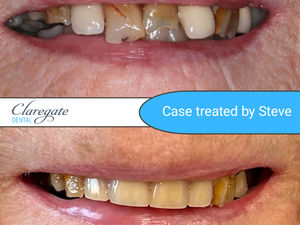Concerns over drop in mental health referrals during Covid-19 lockdown
The number of people with depression or anxiety referred for therapy more than halved during lockdown in areas of the Black Country and Staffordshire, new figures reveal.

Mental health charities say they are concerned people may not be seeking help, despite suffering increased stress and anxiety during the coronavirus crisis.
Last April, NHS statistics show that 1,420 people were referred to psychological therapies for depression and anxiety in the Sandwell and West Birmingham Clinical Commissioning Group (CCG) area – but the latest figures show that this April the number had fallen to just 510, a drop of 64 per cent.
There was also a drop in the number of patients who began therapy during the month – 540 compared to 1,040, a fall of 48 per cent.
In the Wolverhampton CCG area there was a drop of 60 per cent – from 555 in April 2019, to 220 in April 2020. There was also a drop in the number of patients who began therapy during the month – 275 compared to 525, a fall of 48 per cent.
A total of 145 people were referred in April in the South East Staffordshire and Seisdon Peninsula CCG area – drop of 58 per cent from 345 in April 2019. There was also a drop in the number of patients who began therapy during the month – 110 compared to 310, a fall of 65 per cent.
In the Dudley CCG area, statistics show 580 people were referred last April, compared to 340 people this April – a drop of 41 per cent. There was also a drop in the number of patients who began therapy during the month – 270 compared to 550, a fall of 51 per cent.
And a total of 300 were referred in April this year in the Walsall CCG area – a drop of 39 per cent from 495 the previous April. There was also a drop in the number of patients who began therapy during April – 135 compared to 270, a fall of 50 per cent.
Across England, referrals were down by 57 per cent, falling from 133,191 to 57,814. While, the number of patients starting treatment fell from 95,070 to 62,375, a decrease of 34 per cent.
Danielle Hamm, associate director for campaigns and policy at charity Rethink Mental Illness said the figures reflected the "significant disruption" to mental health services during the initial pandemic response.
Ms Hamm said: "We’re very concerned to see the number of referrals dropping so rapidly at a time when a significant number of people reported a deterioration in their mental health, combined with an increase in waiting times for those who have sought help."
A spokesman on behalf of NHS Black Country and West Birmingham CCGs said: “Dealing with coronavirus is the biggest challenge the health and care service has ever faced.
Pressures
"Making sure the NHS is able to deal with coronavirus and at the same time making sure it is still available for everybody needing urgent and emergency care has meant an unavoidable impact on some services and has also led to a reduction in referrals.
“To keep patients and healthcare staff safe, some mental health services have temporarily changed to maximise how mental health support is provided, such as conducting face-to-face appointments by telephone or video.
"In addition, a new 24/7 mental health crisis helpline for the Black Country was introduced in May 2020, providing residents of all ages with access to urgent mental health, learning disability and/or autism support.
"The helpline is manned by specialist mental health staff who can also signpost to other mental health services if these are required.
“Over the coming months the NHS will be focusing on the restoration and recovery of healthcare services, ensuring patients and the public are clear on when services are reinstated and that these services are safe.
"The NHS is here for you and it is vitally important that people continue to access NHS services.”
Dr Shammy Noor, chairman of South East Staffordshire and Seisdon Peninsula CCG, added: "We are concerned that there has been a drop in the number of patients seeking help for their mental health, especially as we know that during the coronavirus crisis many people will have feeling extra pressures. This has been mirrored by drops in health seeking behaviour of patients in many other specialities.
"We are working hard to understand why this is as many factors will be at play.
"Chief amongst these is that many people have believed that the NHS is too busy or have feared that they will become infected if they have contact with NHS services."





